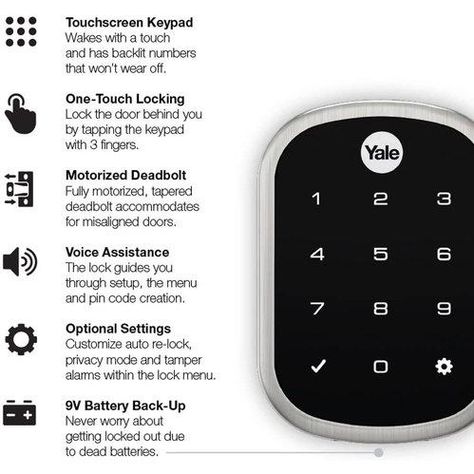Because it rained, the game was cancelled. Because squiggly woke up late, he had to.

Grammar Videos Clauses And Sentence Structure – Youtube Dependent Clause Clause Sentence Structure
A dependent clause in a sentence beginning with because. ex:

Starting a sentence with because clause. Otherwise, you end up with a fragmented sentence. Starting a sentence with because: A main clause is something that could be a complete sentence by itself.
In formal writing, sentences can start with because when they start with a dependent clause but still complete the thought. Because heads up subordinate clauses, which means if you have a clause that starts with because, you must also have a main clause in your sentence. Many subordinate clauses begin with subordinating conjunctions.
A main clause is something that could be a complete sentence by itself. A subordinate clause is, yes, subordinate to the main one; Because it rained is the because clause, and it is dependent because it is a fragment when.
This is often the case when the phrase begins with a conjunction (connecting word) such as because, or although, or when. In informal and spoken writing, answers to questions can start with because, even if they are not connected to a main idea. When the clause is positioned at start of the sentence, offset it with a comma.
All cars stop when they see a red flag. In other words, the trick with “because,” as with any other subordinating conjunction (e.g. In these examples, the dependent clauses are shaded and the subordinating.
The rule is that you can’t start a sentence with “because” as it should only be used to join the main clause with a dependent clause. In the second sentence, whoever is correct because it is the subject of called. Noun clauses typically don’t begin with the subordinating conjunction because, or with just because.
For example, in the sentence how you do it doesn’t matter, how you do it is a noun clause acting as the subject of the sentence. A dependent clause that starts with a subordinating conjunction (e.g., when, unless, because, until) will be functioning as an adverb. When you flip the order of your clauses and put a comma between them, your sentence will start with “because” and still be correct.
For example, the phrase, because i. Because squiggly woke up late, he had to postpone the fishing trip. A dependent clause is a group of words which does not qualify on its own as a sentence.
This is often the case when the phrase begins with a conjunction (connecting word) such as because, or although, or when. for example, the phrase, because i am hungry is not a sentence on its own. The main clause can come first or last; In each sentence the clause is the direct object of asked.
However, this does create a. (1) all cars stop (the subject of this clause is all cars, and the verb is stop. we have shown this clause in bold because it is the main clause, called an independent clause.) (2) when they see a red flag But in the first sentence, whomever is correct because within its clause, it is the object of saw.
Starting a sentence with because clause. An explanation of clause look at this sentence: The thing with “because” is that it’s a subordinate conjunction, which means it’s usually used to connect two clauses — a subordinate clause and a main clause.
The main clause can come first or last; If we wanted to rephrase the sentence on the card with a noun clause as a subject, we could do it like this. It does have a subject and verb, which is all a.
Because heads up subordinate clauses, which means if you have a clause that starts with because, you must also have a main clause in your sentence. This sentence has two clauses: If it comes last, you need a comma.
If it comes last, you need a comma. Because heads up subordinate clauses, which means if you have a clause that starts with because, you must also have a main clause in your sentence. If it ends the sentence, do not use a comma.

Sentence Types – Independent And Dependent Clauses Dependent Clause Teaching Resources Primary Teaching Posters

Pin On English Learning And Grammar

Starting A Sentence With Because Posted On July 10 2014 By Chris Maynar Sentences Complex Sentences Writing A Book

What Is A Subordinate Clause Grammar And Punctuation Subordinate Dyslexia Teaching

Noun Clause Definition Functions And Examples Of Noun Clauses 7esl Nouns Clause What Is A Noun

Printable Subordinate Clause Worksheet – Your Student Will Underline The Subordinate Claus Subordinating Conjunctions Conjunctions Worksheet Sentence Structure

Creating Complex Sentences Worksheet Complex Sentences Worksheets Complex Sentences Writing Complex Sentences

Sentence Patterns Dependent Clauses Writing Worksheets Sentences Dependent Clause Sentence Structure

Compound-complex Sentence Definition And Useful Examples 7esl Compound Complex Sentence Complex Sentences Compound Complex

Sentence Patterns Varying Dialogue Writing Worksheets Writing Dialogue Writing Worksheets Worksheets Free

Hellolearnenglishwithantriparto Ten Ways To Start Sentences Learnenglish Ingilizce

Simple Compound And Complex Sentences Complex Sentences Sentence Examples Subordinating Conjunctions

A Complex Sentences Has An Independent Clause And At Least One Dependent Clause Here Is 5 Comlex Complex Sentences Complex Sentence Examples Sentence Examples













